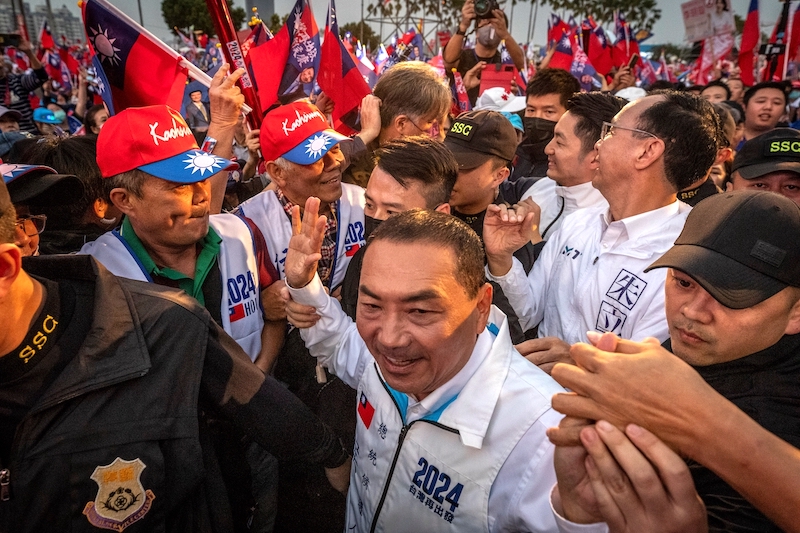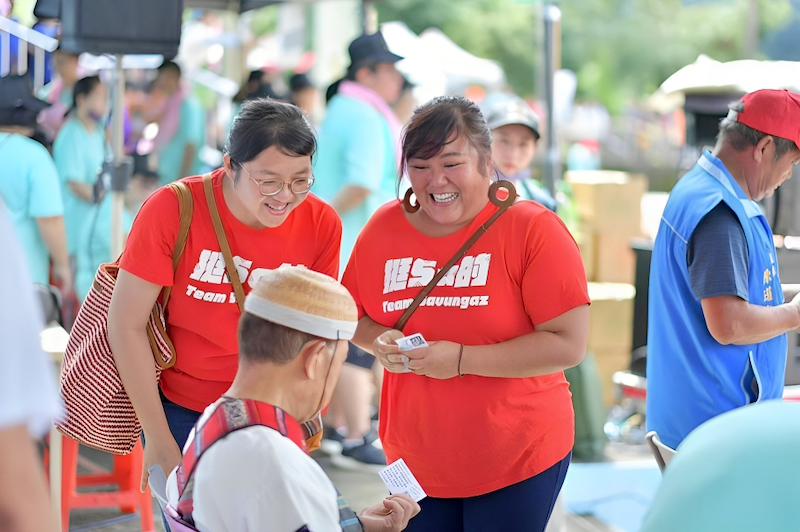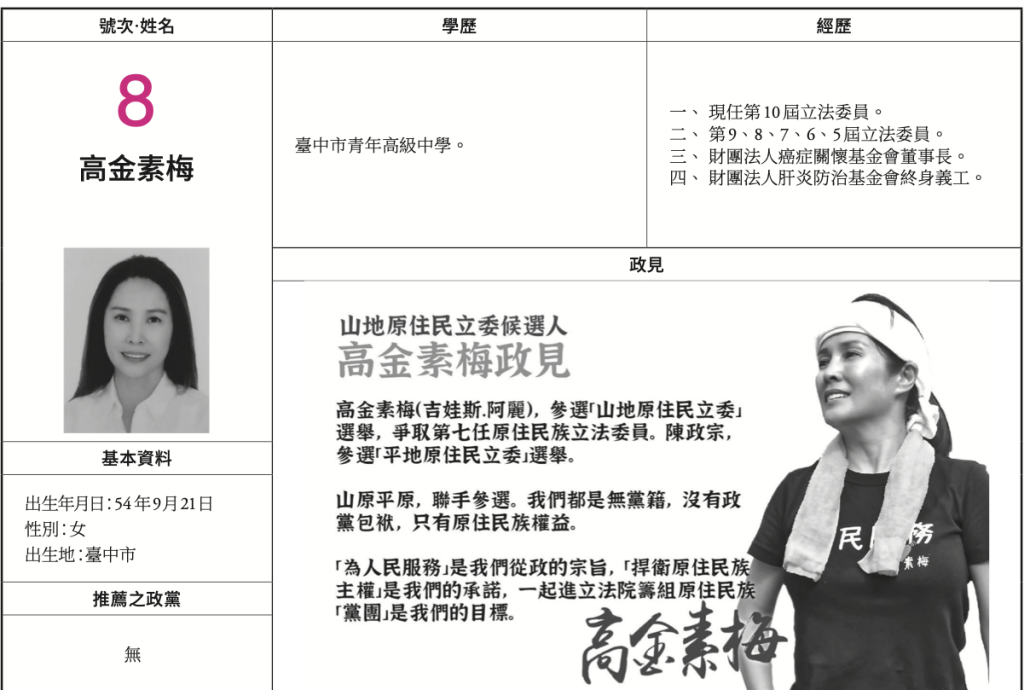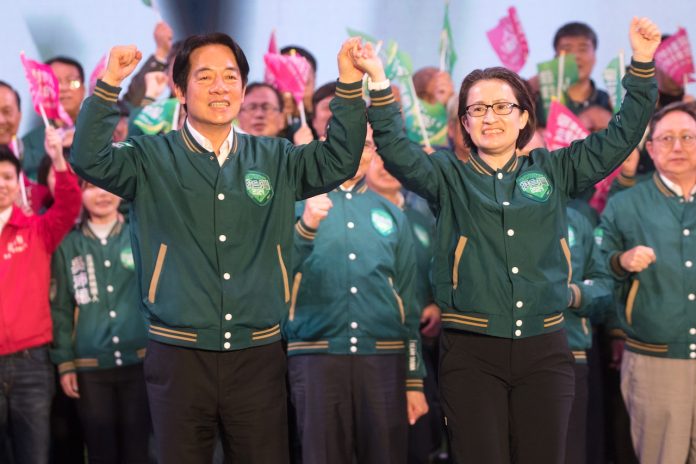Taiwan elected its new president and vice-president on January 13. The country also voted for both district legislators and their preferred political party, and held Taiwan’s Highland and Lowland Indigenous Legislator election.
Presidential Election
Taiwan’s presidential election saw incumbent vice-president Lai Ching-te (賴清德) elected as president, and former US envoy Hsiao Bi-khim (蕭美琴) elected as vice-president. The Democratic Progressive Party (DPP) duo secured 5,586,019 votes (40.05 per cent), marking the party’s third consecutive presidency after Tsai-Ing Wen’s two terms.
Upholding the DPP’s stance that Taiwan is an independent nation, the duo is committed to continuing Tsai’s efforts to strengthen diplomatic and military relations with democratic countries – despite Beijing’s intimidation and economic sanctions.
Opposition KMT candidates Hou Yu-ih (侯友宜) and his running mate Jaw Shau-kong (趙少康), whose proposals encouraged more trade and communication with China, received 4,671,021 votes (33.49 per cent).

Coming in third is ex-Taipei mayor and chairman of the Taiwan People’s Party (TPP), Ko Wen-je (柯文哲), whose partnership with Wu Hsin-ying (吳欣盈) gained 3,690,466 votes (26.46 percent). The 4-year-old party sought to persuade voters that it would present as a practical and novel option differing from the two major ruling parties.
This year, more than 14 million individuals voted, resulting in a voter turnout slightly above 71 per cent.
In Lai’s victory speech, he expressed his gratitude to the people of Taiwan and thanked his two opponents for displaying “democratic temperament” through their congratulatory phone calls post-election. He also spoke of his hope to collaborate with their parties in parliament for Taiwan’s unity.
Lai emphasised that his victory represents three significant meanings.
“First, Taiwan showed the world that we sided with democracy amid choices of democracy and authoritarianism. The Republic of China, Taiwan, will continue to walk alongside international allies,” he said.
“Second, the people of Taiwan have successfully resisted external interference, choosing their president on their own,” he said, alluding to the long-standing pressure China exerts on Taiwan’s sovereignty.
The third meaning of his victory is reflected in the DPP’s campaign slogan “Choose the right people, walk the right path”, with Lai saying the majority vote it garnered meant the country will “continue on the right path, without turning away or looking back”.

Party vote
Taiwanese voters also voted for district legislators and their preferred political party. The party vote determines the share of seats a party can secure as “at-large legislator” in the Legislative Yuan.
Asked about DPP’s failure to retain a majority of seats as the party expected, Lai said he respects the decision of the Taiwanese people.
“People hope for a more efficient parliament, and that’s the people’s decision, so we must accept it,” he said. “I will form the best team to face the efficient supervision of the parliament, and I will make this country less corrupted, more promising, and more progressive.”
The Legislative Yuan consists of 113 seats: 73 seats for district legislators; 34 seats for at-large legislators; 3 seats for highland Indigenous legislators and 3 seats for lowland Indigenous legislators.
In the vote for district legislators, the DPP secured 37 spots while the KMT secured 39. The DPP also occupied 13 seats for at-large legislators with a 36.16 per cent party vote, while the KMT secured 13 seats with 34.58 per cent. The rest of the party votes went to the rising third party, the TPP, whose 22.07 per cent party vote granted it 8 seats and made it a critical minority.
Indigenous Legislator election

Indigenous Wonder woman Savungaz Valincinan lost in Taiwan’s Highland Indigenous Legislator election with 6840 votes.
In the Instagram post accepting her defeat, Savungaz thanked supporters and promised to “come back in 4 years” and “make the miracle happen”.
“Not being elected is not an end, we nailed it,” her post read. “We proved that even without money and resources, as long as we walk the walk, we’ll be supported and recognised.
“I will continue to be present wherever Indigenous people are; regardless of the height of the mountains and the distance of the rides, I will continue to stand with fellow Indigenous people and fight for our rights.”
In Taiwan, candidates with the top three votes from both Highland and Lowland Indigenous will secure seats in the Legislative Yuan, Taiwan’s parliament.
Among the elected Highland Indigenous Legislators are Ciwas Ali (37,131 votes) who is unaffiliated; Saidhai Tahovecahe (31,874 votes) from the Democratic Progressive Party (DPP), both re-elected for their second term; followed by Sasuyu (21,304 votes) from the Kuomintang (KMT).
Similarly, the elected Lowland Indigenous Legislators include Sra Kacaw from the KMT (45,088 votes) and Asenay Daliyarep (27,349 votes) from the DPP, both also securing their second term, along with Kin Cyang from the KMT (20,012 votes).
This year, 122,343 out of 210,360 lowland indigenous legislator voting-eligible population voted (58.25 per cent) while 146,750 highland Indigenous voters out of 228,164, 64.32 per cent voted.

Announcing her victory, unaffiliated candidate Ciwas Ali thanked her supporters, who she referred to as “little bees”.
“We didn’t have the support of a political party, and we didn’t have influential figures backing us,” she told TITV News. “Each and every one of you is a little bee, so this unity of little bees has formed a tremendous force.”
Despite running as an unaffiliated candidate, Ciwas Ali is a member of the KuoMinTang Legislative Yuan caucus, the parliamentary caucus the KMT established within the Legislative Yuan.
She said she “seeks to engage with KMT Indigenous legislators who supported her in her past rally” to tackle Indigenous issues.
Saidhai Tahovecahe also thanked voters, addressing her victory as a “collective honour”. She said that though she “had many bills passed in the past”, she recognises that “Indigenous Rights Legislation remains as Indigenous People’s primary concern”.
“[Passing Indigenous Rights Legislations] will be my primary goal in the coming four years, including vigorous advocacy for the enactment of tribal legal entities,” she told United Daily News.


